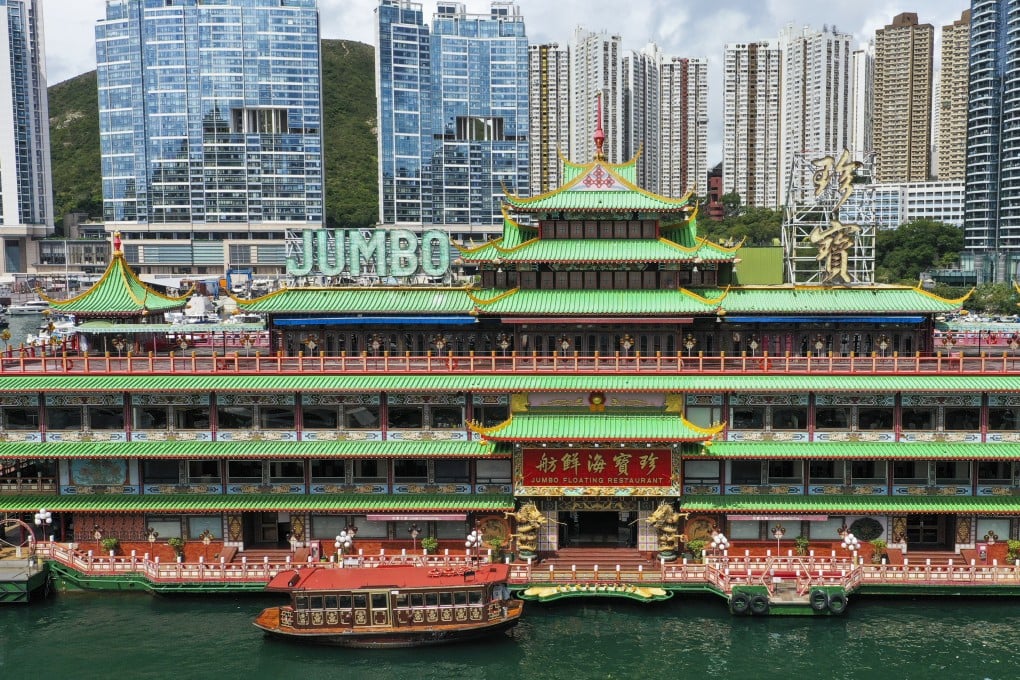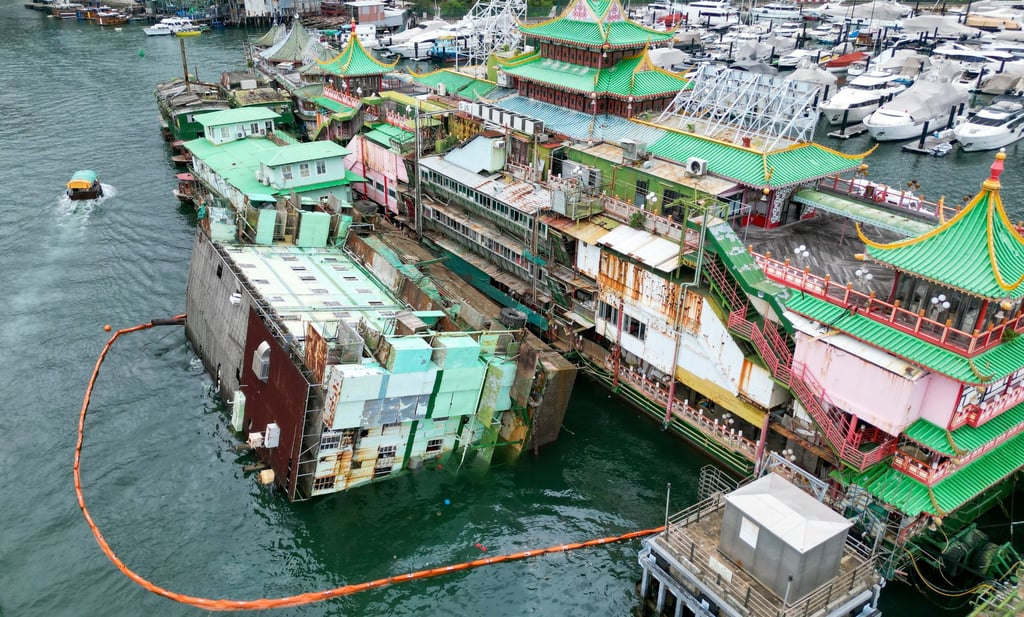‘How can I bear to let it go?’ As struggling Jumbo Floating Restaurant prepares to exit city, Hongkongers hope for ‘white knights’ to save sinking ship
- Sampan operator Thomas Lai says landmark has helped boost Hong Kong’s economy and provide ‘distinctive experience’ for tourists in search of something different
- Jumbo had been a ‘must-see’ attraction for tourists, says veteran tour guide Choi Pat-tai, urging authorities to use any means to conserve it

Sampan operator Thomas Lai cannot help but sigh when he looks at Hong Kong’s famed Jumbo Floating Restaurant, a forlorn, silent figure in Aberdeen Harbour now shorn of the glitter and glamour that marked its heyday as one of the city’s unique attractions.
Having spent more than half of his life ferrying tourists from a nearby pier to the restaurant, the thought of having to part with the 46-year-old landmark is too much for Lai to bear.
The 63-year-old hopes someone will come forward to save the sinking ship after its operator recently announced plans to exit Hong Kong this month because of a lack of funds to keep the structure in good condition. Talks between operators on continuing the struggling business as part of Ocean Park also failed.

The 30-metre kitchen barge connected to the boat capsized on Wednesday, compounding the restaurant’s woes and aggravating its poor state of affairs. This is a far cry from the days when the place, identifiable by its large green and red neon sign, was packed with revellers well into the night.
“How can I bear to let it go? This is a landmark which has helped boost Hong Kong’s economy, from tourism and catering to the hotel industry,” Lai said. “Without a landmark, how do you attract tourists to Hong Kong? They can go to other countries to look for a distinctive experience.”
Lai is among many Hongkongers who have a deep, emotional connection to the attraction and have called for “white knights” to come to its rescue, saying it would be a great loss if authorities allowed the floating restaurant to quit the city.
During its heyday, Jumbo had served millions, including Britain’s Queen Elizabeth and film stars such as Gwyneth Paltrow, Tom Cruise and Chow Yun-fat. Lai was able to ferry more than 200 tourists a day back then, earning thousands of dollars.